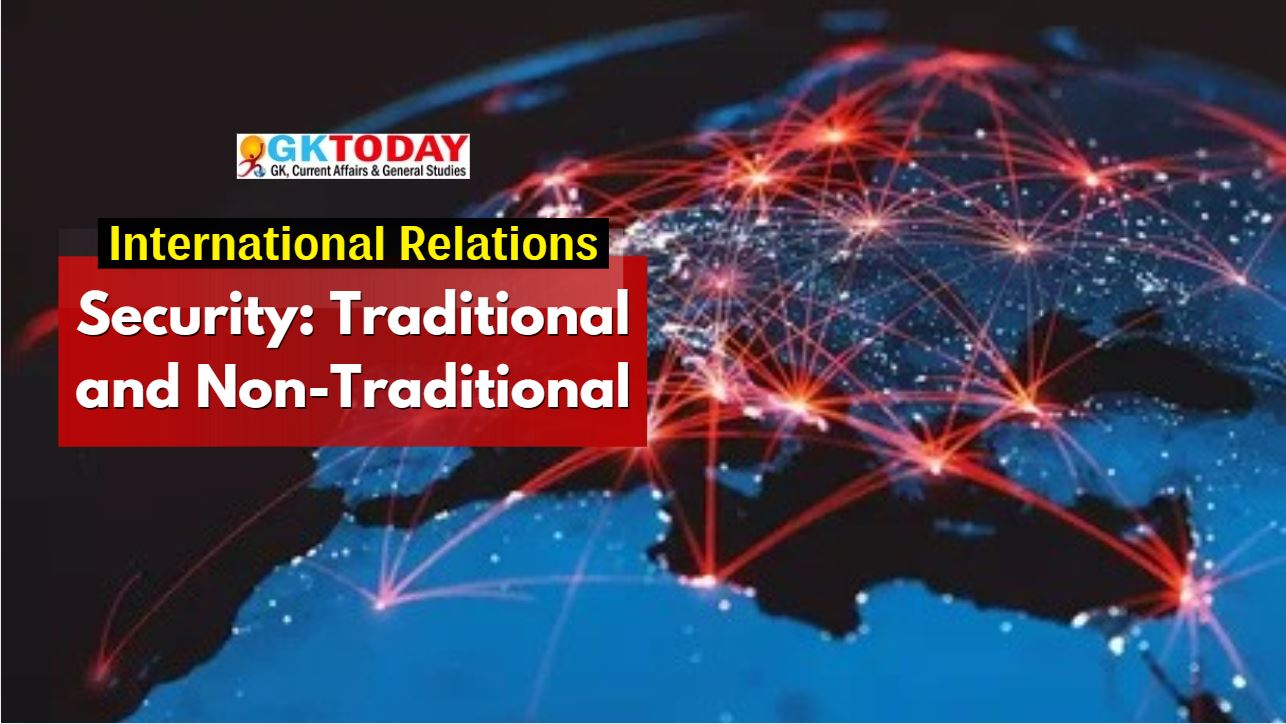UGC-NTA NET Political Science – Non-Traditional Security
Non-traditional security (NTS) encompasses a broad spectrum of threats that deviate from conventional military challenges. It addresses issues that can destabilise states and societies without necessarily involving armed conflict. These threats affect various aspects of human life, including the environment, economy, health, and social structures.
Definition of Non-Traditional Security
Non-traditional security refers to threats that are non-military in nature. These threats can undermine the stability and safety of states and societies. Unlike traditional security, which focuses on state sovereignty and military capabilities, NTS encompasses a wide range of issues that impact human well-being. Examples include environmental degradation, economic instability, health crises, and social unrest.
Key Areas of Non-Traditional Security
Environmental Security
Environmental security deals with threats arising from environmental changes. Key issues include:
- Climate Change: Affects weather patterns and increases the frequency of natural disasters.
- Resource Scarcity: Challenges related to diminishing water, food, and energy resources.
- Biodiversity Loss: The decline in species and degradation of ecosystems can lead to ecological consequences.
Economic Security
Economic security focuses on the stability of economic systems. Key concerns include:
- Globalisation: Economic interdependence can lead to vulnerabilities.
- Economic Inequality: Disparities can fuel social unrest.
- Cybersecurity Threats: Risks to financial systems from cyber attacks.
Health Security
Health security addresses threats to public health. Important aspects include:
- Global Pandemics: The COVID-19 pandemic brought into light vulnerabilities in health systems.
- Access to Healthcare: Inequities in healthcare access can exacerbate health crises.
- Bioterrorism: The potential for deliberate attacks using biological agents.
Human Security
Human security prioritises the protection of individuals. Key issues include:
- Human Rights: Violations can lead to conflict and instability.
- Migration: Displacement due to conflict or environmental factors.
- Gender Security: Violence against women as a critical aspect of human security.
Societal Security
Societal security focuses on the stability of communities. Key elements include:
- Identity Threats: Issues related to ethnic, religious, and cultural identities.
- Social Cohesion: The ability of communities to maintain harmony.
- Terrorism and Extremism: Their impact on social structures and cohesion.
Theoretical Perspectives
Constructivism
Constructivism emphasises the role of social constructs in defining security. It argues that non-traditional threats are shaped by societal perceptions and norms. For example, climate change is viewed differently across cultures, influencing policy responses.
Critical Security Studies
This perspective challenges traditional state-centric views of security. It focuses on marginalised voices and broader security issues, such as poverty and social justice. It advocates for a more inclusive understanding of security that considers various societal factors.
Human Security Approach
The human security approach promotes a people-centred view of security. It prioritises individual well-being and dignity. This involves addressing the root causes of insecurity, such as poverty and inequality.
Global Governance and Non-Traditional Security
International organisations play important role in addressing non-traditional security threats. The United Nations (UN) and the World Health Organisation (WHO) are key players in coordinating global responses.
Multilateral Cooperation
Multilateral treaties, such as the Paris Agreement on climate change, illustrate the importance of global cooperation. These agreements aim to tackle issues that transcend national borders.
Challenges of State Sovereignty
Addressing non-traditional security issues often challenges state sovereignty. States may need to relinquish some control to engage in global solutions.
Case Studies
Climate Change
Climate change impacts national security. It can alter migration patterns and increase competition for resources. International responses include agreements like the Kyoto Protocol and the Paris Agreement, which aim to mitigate climate effects.
Pandemics
The COVID-19 pandemic serves as a critical case in global health security. It revealed vulnerabilities in health systems and the need for international cooperation. Responses included vaccine distribution and public health measures.
Cybersecurity
Cybersecurity threats are increasing, particularly against critical infrastructure. Governments and organisations are developing international norms and regulations to address these challenges.
Challenges in Addressing Non-Traditional Security
Several challenges hinder effective responses to non-traditional security threats:
- Lack of Political Will: Insufficient commitment from governments can stall progress.
- Resource Limitations: Many states lack the resources to address complex issues.
- Measurement Difficulties: Quantifying non-traditional threats can be challenging.
- Interconnectedness of Issues: The relationship between issues complicates responses. For example, climate change can lead to migration, creating additional security concerns.
Future Trends
The recognition of non-traditional security is growing in policy-making circles. Future trends may include:
- Focus on Resilience: Strategies to adapt to changing circumstances will gain importance.
- Technological Role: Technology can both exacerbate and help address non-traditional security threats.
- Interdisciplinary Approaches: Collaboration across disciplines will be essential for effective solutions.


